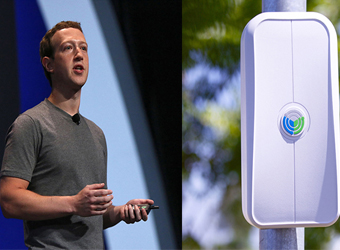A lot of onlookers criticised Mark Zuckerberg’s Thursday night manifesto, Building Global Communities, as a public relations stunt, a calculated move to blunt criticism Facebook’s role in propagating fake news that might have helped tip the presidential election.
Techies like Zuckerberg are all about efficiency, and a 6,000-word braindump isn’t the most efficient way to sway opinion as U.S. President Donald Trump has shown on Twitter, brevity is the path to America’s hearts and minds.
Others have suggested that this is another step toward running for president, following his move to tour all 50 states, even though Zuckerberg has deniedany schemes to run.
I think we’re actually seeing something simpler. This is Mark Zuckerberg navigating a midlife crisis of confidence only in public, as you’d expect from the founder of the platform where people air their private lives for the world to see.
It’s the same kind of crisis that Bill Gates had when the Department of Justice sued Microsoft for antitrust about 20 years ago.
Gates and Zuckerberg have a lot in common, beyond the obvious fact that both created massively successful tech companies that made them deca-billionaires.
Both dropped out of Harvard. Both built reputations as ruthless business competitors.
Both are solid technical visionaries, often right, and quick to correct course when wrong: Gates initially missed the importance of the web but eventually led Microsoft to dominate it with Internet Explorer, while Zuckerberg made an ill-fated bet on a standard called HTML5 for Facebook’s mobile development before switching courses.
Now Facebook’s mobile apps rule the charts and it makes almost 90 percent of its revenue through ads delivered to mobile platforms.
And both seem to have blind spots when it comes to how others see them.
According to a Wired report in 2000, Gates insisted that Microsoft had done nothing wrong, and one associate said the suit “literally made him sick.”
He had built a massively successful company out of nothing, and didn’t understand why he was being attacked for it.
The other side’s point of view that Microsoft had a monopoly on PC operating systems, and was using the power of that monopoly to squash competition simply sounded like sour grapes from competitors in Silicon Valley.
Zuckerberg seems to have the same kind of blind spot when it comes to Facebook’s critics.
Last summer when controversy erupted about Facebook allegedly censoring conservative news viewpoints from its Trending Topics module, Facebook’s response was to fire the human editors overseeing the project and increase its reliance algorithms instead.
As a result, the site was inundated with fake news, including some pro-Trump and anti-Clinton stories generated by Macedonian teens during the election season.
Zuckerberg then expressed dismay at the idea that fake news on Facebook could have swayed the election.
Zuckerberg has grown up fast. He was 19 when he started Facebook, and probably barely had time to breathe as he built it into a $400 billion market cap company that reaches nearly two billion people every day.
There were existential threats on every side, competing social networks like Twitter, Instagram, and LinkedIn, big players like Google coming after its core market.
That’s all done now. Facebook is winning. It’s vanquished or bought most of its competitors, and newcomers are forced to spend buckets of money just to play in the same league, ask Snap, which lost more than $500 million last year.
But the price of all that success may be a realization that the rest of the world doesn’t view your life’s work as an unambiguous force for good in the way that you do.
In the last few years, Zuckerberg seems to have realized that, and has turned some of his energy toward improving society.
He has donated to San Francisco’s main trauma hospital and pledged most of his fortune toward ambitious goals like ridding the world of disease.
Now, he’s trying to figure out how to make his creation- the source of his wealth- better for society as well.
Source: CNBC


